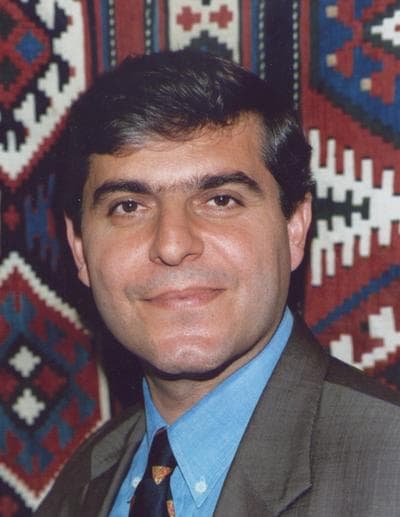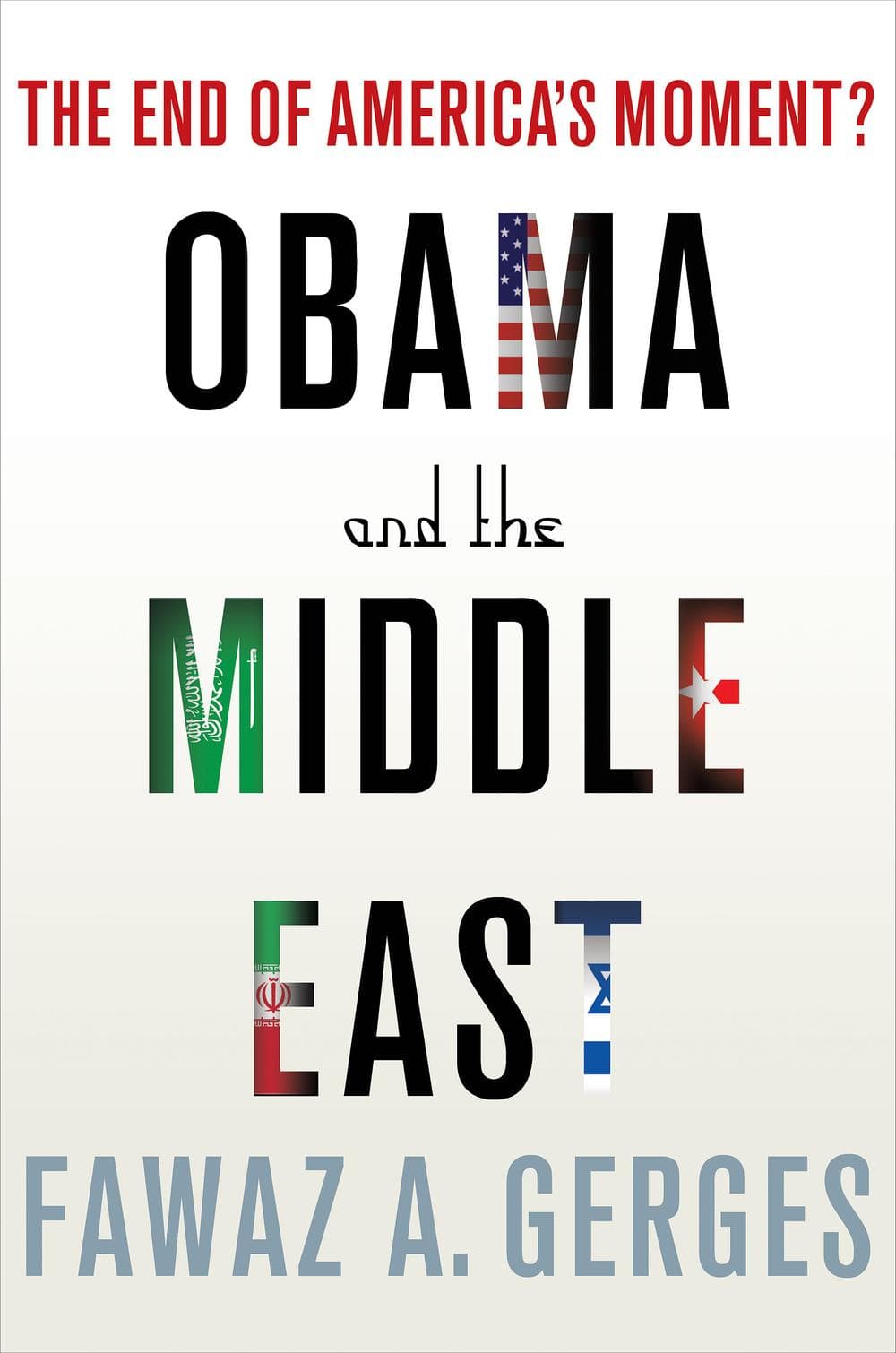Advertisement
Is This The End Of America's Moment In The Middle East?
Resume
Author Fawaz Gerges argues that this is the end of the United States' moment in the Middle East.
In "Obama and the Middle East," Gerges argues that President Barack Obama's policies in the region have failed to live up to his rhetoric, especially the theme of his historic address in Egypt soon after he was elected president.
Obama said he came to Cairo to seek a new beginning between the United States and the Muslim world. Gergez, who chairs the Middle East Center at the London School of Economics, says action did not follow, mainly because there has been no change in the Israeli-Arab peace process.
Gerges says part of the problem is that Washington has changed President Obama more than he has changed Washington.
Book Excerpt: "Obama and the Middle East: The End of America's Moment"
By: Fawaz Gerges
 The Middle East today is undergoing a revolutionary transformation along lines similar to those of the popular-nationalist revolutions of the 1950s that swept the Arab world, from Egypt to Iraq. The important difference between then and now is that the new social uprisings are bottom-up, as opposed to top-down, driven by politics, economics, and the desire for dignity: millions of ordinary Arabs are seeking freedom and a better quality of life. The mukhabarat, or state controlled by the secret police, is no longer omnipotent. The psychological fear factor separating public opinion from the ruling elites has been eroded. People across the Arab world feel empowered and even emboldened, whereas autocratic rulers are trembling in fear. They face an uncertain future. The Arab authoritarianism that stabilized and protected US interests for a half century is beginning to seem not so stable. Neither are American power and influence as stable and durable as they used to be. A powerful current of revolutionary social change is eroding the very foundations of America’s friends and foes alike. Although the character of the new Middle East remains unknown, one thing is clear. It will never be the same again.
The Middle East today is undergoing a revolutionary transformation along lines similar to those of the popular-nationalist revolutions of the 1950s that swept the Arab world, from Egypt to Iraq. The important difference between then and now is that the new social uprisings are bottom-up, as opposed to top-down, driven by politics, economics, and the desire for dignity: millions of ordinary Arabs are seeking freedom and a better quality of life. The mukhabarat, or state controlled by the secret police, is no longer omnipotent. The psychological fear factor separating public opinion from the ruling elites has been eroded. People across the Arab world feel empowered and even emboldened, whereas autocratic rulers are trembling in fear. They face an uncertain future. The Arab authoritarianism that stabilized and protected US interests for a half century is beginning to seem not so stable. Neither are American power and influence as stable and durable as they used to be. A powerful current of revolutionary social change is eroding the very foundations of America’s friends and foes alike. Although the character of the new Middle East remains unknown, one thing is clear. It will never be the same again.* * *
As can be seen, Obama inherited a long, bitter, and baleful legacy in the Middle East, a legacy that encompasses the Bush era and goes back to the Cold War, whose patterns are clearly evident today. He also inherited a weak economy, one that fetters his hand and imposes severe limits on his stated wish to refashion America’s engagement with the Middle East. In order to overcome the bitter legacy between America and Middle Eastern peoples and societies, Obama must show leadership and challenge the political culture of conformity and orthodoxy. He must educate the American public about the region and take on deeply entrenched special interests that have powerful political constituencies. He will need to invest considerable political capital in building a constituency for peace and change at home and to reallocate the enormous resources of military programs to peace programs. And just as important, Obama will have to have the political will, resolve, and stamina to pursue such a transformational strategy.
After more than three years of miasma in the White House, the fog has lifted, and there is clarity to Obama’s foreign policy record. There is no longer any ambiguity about where he stands on the important challenges facing the United States, particularly in the Middle East. It is time to evaluate Obama’s stance. This book will attempt to answer several critical questions: To what extent is Obama’s foreign policy transformational or centrist-realist? Does Obama, despite his uplifting rhetoric, represent continuity rather than change? Has he challenged the basic premises on which US Mideast policy is based—the Israel-first school, America’s relations with oil-producing regimes, and the war on terror? How high does the Middle East stand on Obama’s foreign policy agenda? What does his response to the Arab popular uprisings in early 2011 say about American influence and engagement in the region? What does the Obama presidency reveal about American foreign policy toward the Middle East and the potential for continuing failure? What is it about the broken American political system that so often makes the practice fall short of the rhetoric? What can be done to close the gap between rhetoric and reality in US foreign policy, or, rather, to repair the dysfunctional political system in order to overcome the legacy of bitter relations between America and Middle Eastern societies?
From Obama and the Middle East by Fawaz A. Gergez. Copyright © 2012 by the author and reprinted by permission of Palgrave Macmillan, a division of Macmillan Publishers Ltd.
Guest:
- Fawaz Gerges, author of "Obama and the Middle East: The End of America's Moment"
This segment aired on May 24, 2012.